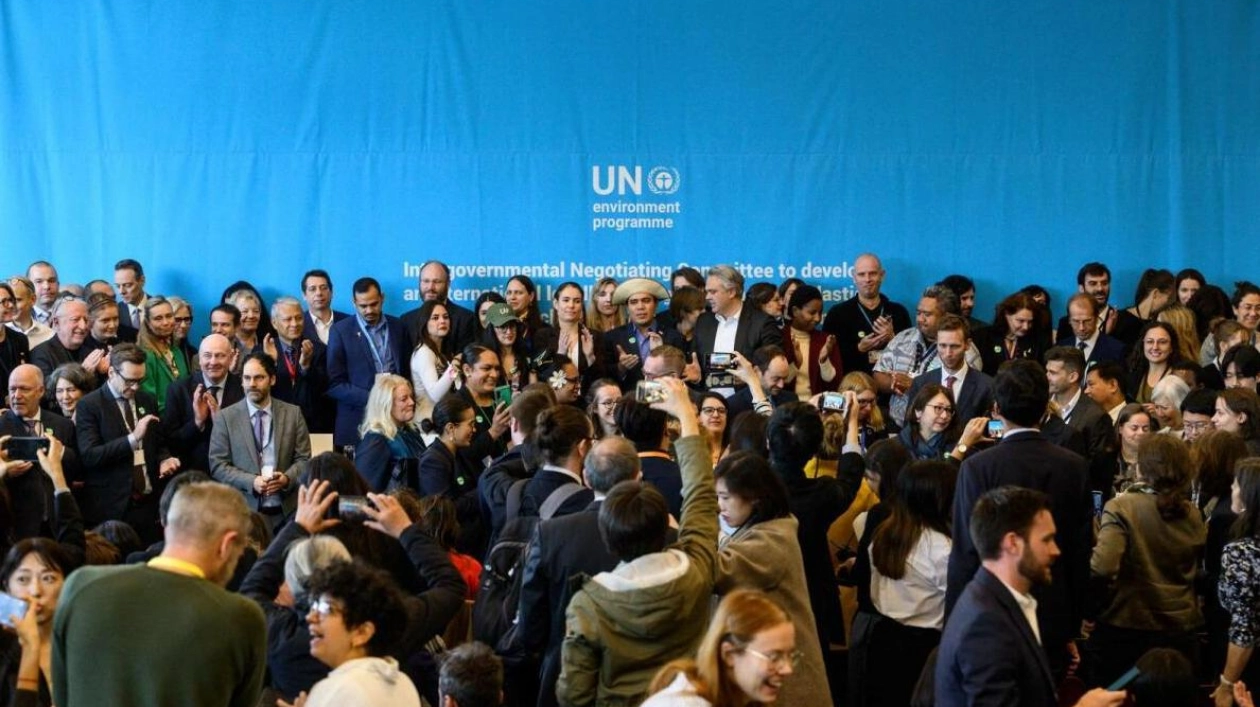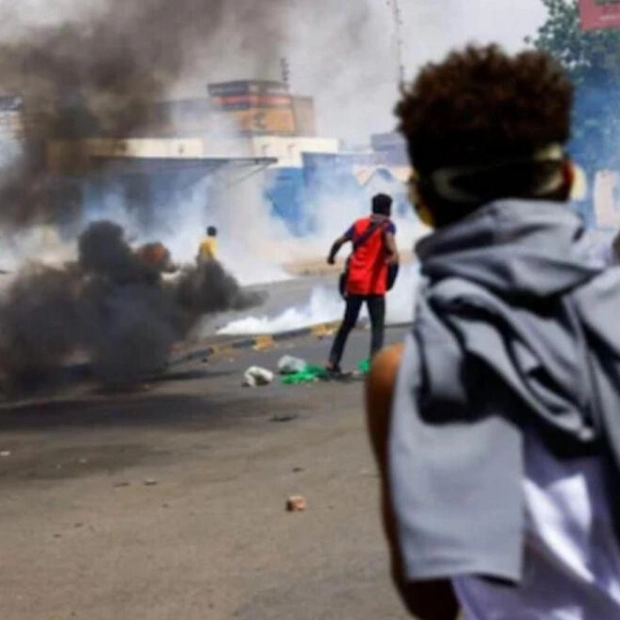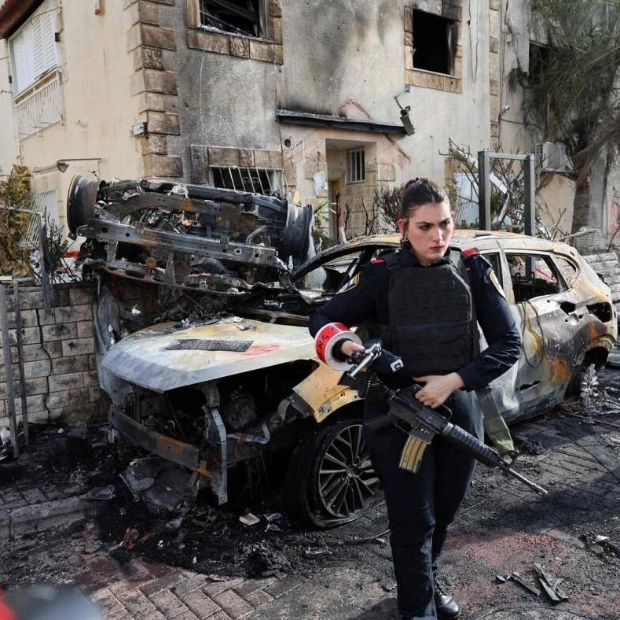Delegates gathered at the conclusion of a member state press briefing during the fifth meeting of the Intergovernmental Negotiating Committee to develop an international legally binding instrument on plastic pollution (INC-5) in Busan on December 1, 2024. – AFP
Numerous nations cautioned on Sunday that a few countries were hindering efforts in South Korea to achieve a groundbreaking global treaty aimed at curbing plastic pollution. With negotiations set to conclude in a matter of hours, delegates reported that a coalition of predominantly oil-producing nations had been inflexible on pivotal issues. These include establishing targets for reducing plastic production and eliminating chemicals deemed or suspected to be detrimental to human health.
"We are also concerned about the ongoing obstruction by the so-called like-minded countries," stated Olga Givernet, France's minister delegate for energy. She emphasized that reaching an agreement on an ambitious treaty remains a top priority and that France is committed to pushing for it. Plastic production is projected to triple by 2060, with over 90% of plastic waste not being recycled. Although all parties in Busan acknowledge the issue, they diverge on the solution.
Countries such as Saudi Arabia and Russia advocate for the treaty to focus solely on waste management and oppose binding global measures. Their stance has been articulated in submitted documents and public plenary sessions, though neither delegation responded to repeated AFP requests for comment. "It is disheartening to witness that a small number of members remain unsupportive of the measures essential for genuine change," remarked Rwanda's Juliet Kabera. She cautioned, "We still have a few hours left in these negotiations, time to find common ground, but Rwanda cannot accept a weak treaty."
Fiji's Sivendra Michael also criticized a "minority group" for obstructing the process. The latest draft of the treaty includes various options, reflecting ongoing disagreements. A promised updated version has been repeatedly postponed. These talks, intended to be the final round after two years of discussion, face potential collapse, with the venue rented only until mid-morning Monday, according to sources.
Portuguese delegate Maria Joao Teixeira expressed genuine concerns that negotiations might fail and need to be extended to another round elsewhere. "We are truly striving to avoid a weak treaty," she told AFP. Environmental groups urge ambitious countries to call for a vote if progress stalls, though observers warn this could alienate some nations in favor of a robust treaty. Another option is for the diplomat chairing the talks to approve an agreement despite objections from a few holdouts, which also carries risks.
Mexico's head of delegation, Camila Zepeda, prefers not to call for a vote. "We have hope in consensus. The multilateral process is slow, but there is a possibility of achieving critical mass to move forward," she explained. "Demonstrating this critical mass helps us to address more contentious issues." German delegate Sebastian Unger also noted that many countries would avoid a vote. Over 100 nations support setting production reduction targets, and dozens advocate for phasing out certain chemicals and unnecessary plastic products.
However, representatives from China and the United States, the leading plastic producers, were absent from a press conference urging ambition. "They are still deliberating, and we are hopeful they will show interest," said Zepeda. "This coalition of willing nations is an open invitation. It's not a matter of them against us." Panama's Juan Carlos Monterrey Gomez urged colleagues, "History will not forgive us" if Busan concludes without an ambitious treaty. "This is the moment to step up or step aside."
Source link: https://www.khaleejtimes.com






